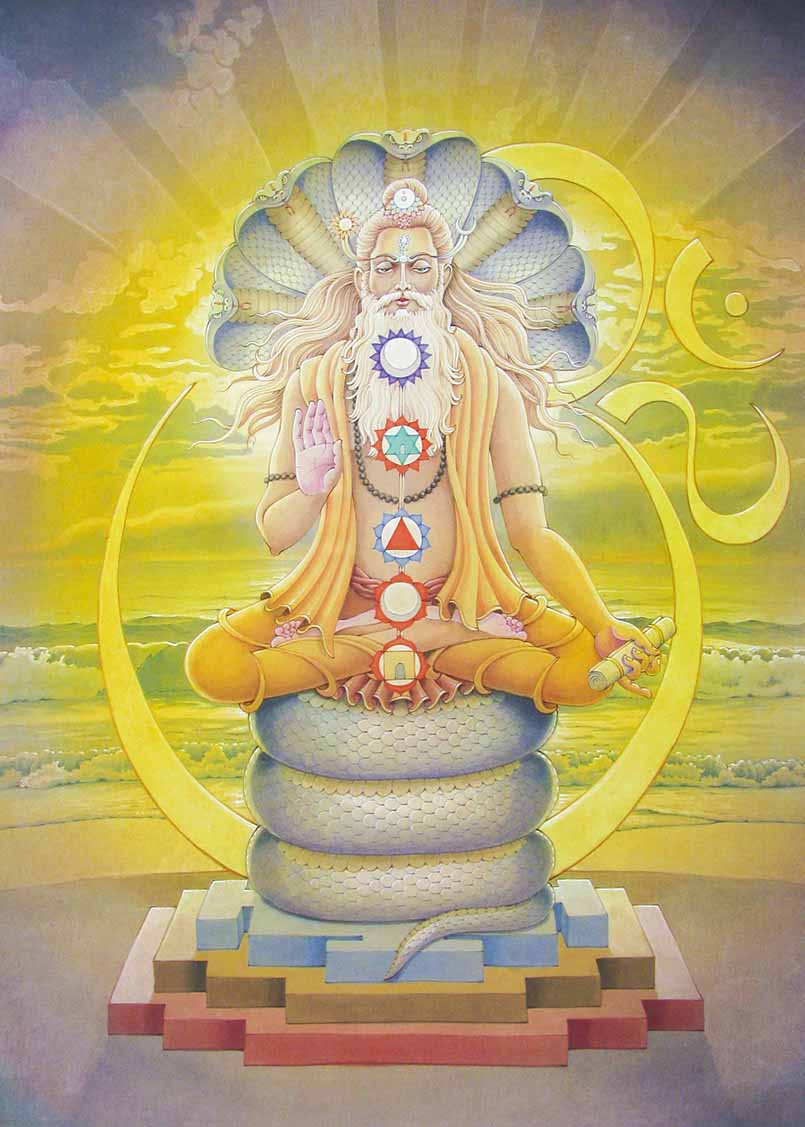Patanjali’s Yoga Sutra Class

Aum Namah Sivaya
Today our three youngest monastics enjoy their quarterly sutra class with Satguru. Here is a snippet from Bodhinatha’s written commentary on the ever-profound Yoga Sutras, so that you too can mentally tune in to this wonderful subject. You can also see a wonderful talk from Satguru here.
Patanjali addresses the idea of what makes the attainment of samadhi come soon or “be near.” “Samadhi is near to those who are intensely committed to their practice of yoga.” (I.21) In other words, our yoga practice has to be important. It doesn’t work if, for example, it is the sixth out of seven priorities in our life. First we have to do this, then this, then this, then this, and then we do our yoga. It has to be a top priority. Then he brings in Ishvara. “Or samadhi is near through devotion to Ishvara.” (I.23)
Translator Dr. Edwin Bryant comments on this verse: “Patanjali here states that the goal of yoga can be attained by the grace of God, Ishvara. In this sutra, the theistic element of the sutras is encountered for the first time. The theistic, or Ishvaravada, element in Indic thought stretches back at least to the late Vedic period.” The Encyclopedia of Hinduism defines Ishvara Pranidhana as intense devotion to God. “His grace is obtained by intense devotion, and this grace helps the seeker to attain samadhi.”
Patanjali repeates this idea in verse 45 in chapter two. “Through devotion to Ishvara samadhi is attained.” These two verses mean that effort and dedication can be supplemented by the blessings or grace we receive due to our intense devotion to God. In other words, it’s not just the devotion to God, its that the devotion to God opens an individual to receiving God’s blessings, God’s grace. And it’s the grace that transforms you. Or the blessings that transform you. It’s a two step process. The more devotion you have the more open you are to grace so the more blessings you are able to receive which in this case can help you to move toward samadhi.
Additional information on Ishvara is found chapter one verses 24 – 27. “Ishvara is a special purusha because he is unaffected by the kleshas, karma and its fruition and by stored samskaras. In Him the seed of omniscience is unsurpassed. Ishvara was also the guru of those who lived earlier by virtue of His temporal continuity. His symbol is the pranava (syllable Om). Perform japa of the pranava while contemplating on its meaning.”
From Our Gurus' Teachings
Archives are now available through 2001. Light colored days have no posts. 1998-2001 coming later.
